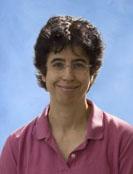Biography
Dr. Cascalho is a physician-scientist who studied and practiced Medicine at the University of Lisbon in Portugal. She was a graduate student at the University of California in San Francisco where she completed her PhD in Molecular Immunology under the mentorship of Dr. Matthias Wabl in 1998. Dr. Cascalho was an Assistant Professor of Immunology at the Mayo Clinic and is currently an Associate Professor of Microbiology and Immunology and of Surgery at the University of Michigan.
Research Interests
Dr. Cascalho’s research focuses on the immunobiology of B cell and T cell responses to transplants, microorganisms, and tumors. Dr. Cascalho’s interest on B cell biology was sparked by her early work on molecular mechanisms of immunoglobulin gene recombination and mutation . Her discovery that DNA mismatch repair drives B cell Ig gene hypermutation led her to investigate the genetic, molecular biological and cellular basis of immune fitness, viral evolution and oncogenesis. During the course of her work in somatic mutation and selection, Dr. Cascalho made several other fundamental observations. 1.The discoveries in Ig gene diversification inspired the concept of a mutable vaccine for mutable viruses. The mutable vaccine departs from canonical approach to vaccine design, which stresses a priori identification of variants. The “mutable vaccine” is a DNA vaccine that encodes a microbial antigen that diversifies in B cells undergoing somatic hypermutation. The variants are secreted from plasma cells and in turn evoke variant-specific immunity in anticipation of variants generated naturally. Current research tests these concepts but already it has revealed that the vaccine can anticipate viral gene variants that would emerge in human populations. .2. Dr. Cascalho and her colleagues discovered B cell and immunoglobulin diversity promote T cell development and establishment of a diverse antigen receptor (TCR) repertoire. This observation propelled a new field of inquiry directed at understanding how B cell and immunoglobulin diversity drive TCR diversification and the impact of such diversification on cellular immunity, in human health and disease and the relationship between T and B cell receptor diversity and immune fitness. 3. Dr. Cascalho and her collaborators discovered that the TNRSF13B gene defines the type and intensity of B cell responses, the interactions between B and T cells and in doing so also sets threshold for activation of innate immunity. Because the TNFRSF13B gene is among the 5% most diverse in the human genome its functions define a continuum of B cell responses and of innate immunity in populations. Dr. Cascalho and collaborators recently found that certain TNFRSF13B polymorphisms encode dominant negative mutants that block microbial transmission and epidemic spread. These findings have suggested that TNFRSF13B gene diversity, maintained by balancing selection, is in some ways to innate immunity what MHC is to adaptive immunity. 4. How B cells of organ transplant recipients respond to antigens carried by the donor and how this response may orchestrate the fate of the graft have become the preeminent questions in the field of transplantation. Current research investigates how donor-specific B cell responses orchestrate immunity to transplants.
Research Opportunities for Rotating Student
A mutable vaccine for mutable viruses The control of immunity by the “transmembrane activator and CAML interactor” (TACI).. Immunotherapies B cell responses in transplantation

